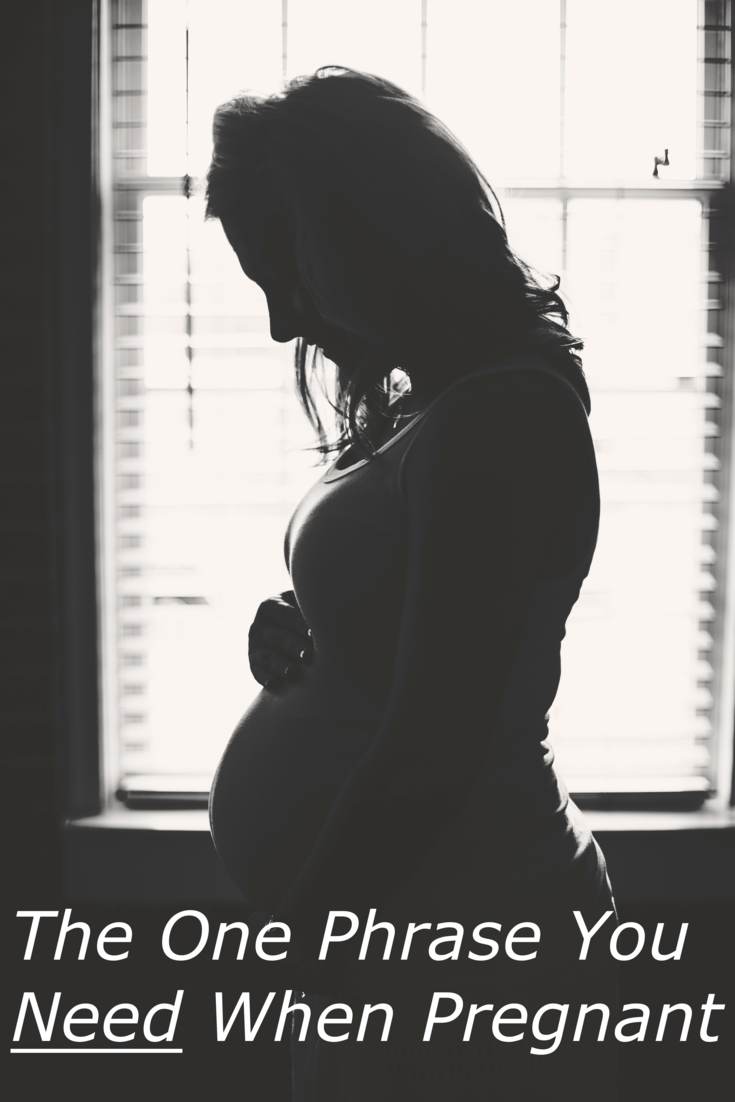The One Phrase You Need When Pregnant

You’re pumping gas at the station and an older woman across from you turns around, smiles, and asks how far along you are. After replying, she says “My [daughter, niece, friend, 3rd cousin’s neighbor once removed] just had a baby and during labor she ALMOST DIED.”
Or…
You’re in line at the grocery store and the person behind you notices you’re pregnant and proceeds to, not to subtly, inspect your cart. They then tell you that the [lunch meat, coffee, fish, processed food, raw food, etc.] in you cart is EXACTLY what caused their distant relative’s coworker’s baby to be born with disease X.
What is it about pregnancy that makes perfect strangers act less than perfect?
You are already concerned about your baby’s well-being. You are well aware that labor is not going to be a walk in the park (although it may be). You may be sleep deprived from multiple nightly trips to the bathroom, nauseas from morning sickness that lasts all day, or just extra sensitive because your hormones haven’t quite balanced out yet.
This simple phrase, six little words, is the ideal reply to the stories strangers try to share.
“I’m sorry that happened to her.”
Followed by turning around, excusing yourself, or writing that text message you’ve been meaning to send. Do not engage in further conversation.
But wait, isn’t that rude???
No, it’s simply establishing a boundary. And it’s communicating three essential thoughts.

Good fences (and boundaries) make good neighbors.
Photograph by Better Birth San Diego
Number 1 – It’s communicating that you are sympathetic to their family, friend, or acquaintance’s situation.
Your goal it not to be dismissive but to express genuine sympathy regarding another woman’s circumstances. Studies have shown that, on average, woman communicate using three times the amount of words men use. This can lead to difficulty feeling comfortable with concise statements. Despite how it may feel, employing such a brief reply is not, in itself, impolite.
Number 2 – It’s communicating that her story is not your story.
When faced with negativity it is all too easy to assume the same will happen to us. Facts prove differently. In 2014 (the most recent year statistics are available) 3,988,076 babies were born in the United States. Of those babies, approximately 3,975,076 were born in perfect health and 3,987,476 mothers survived childbirth. Certainly a child born with a birth defect can bring challenges, and even one mother losing her life in childbirth is a tragedy. But factually, these are very rare occurrences.
Number 3 – It’s communicating that you will not participate in toxic conversations.
Everyone agrees that exposure to toxic chemicals and environments during pregnancy must be avoided. Why then do we expose ourselves to toxic conversations? These conversations increase stress which promotes cortisol production. Cortisol weakens the immune system, reduces bone formation, and causes low birth weights. All are detrimental to your baby’s health.
Pregnancy is a perfect time to begin establishing boundaries. Boundaries are needed to maintain your health and healthy relationships. And they have to be practiced in order to be perfected.
Let’s practice together…
“I’m sorry that happened to her”
See! It feels more natural already.
Have strangers tried to engage you in toxic conversations? Could you have used this response? How did you respond?
Want new articles before they get published?
Subscribe to our Awesome Newsletter.
